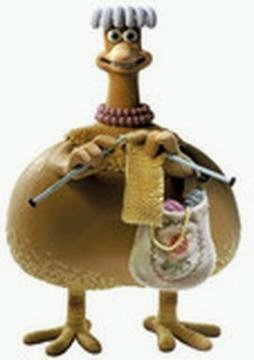Bunny mentioned to me last night that she’s really glad she has me for a mom. I like it when she does that, but I did wonder what happened to pass through her mind to cause her to say so. So, I asked. She told me that when she was in first grade, all the other kids in her class went to Speech class during the week, but that she didn’t, and she felt a little left out. One day, the speech teacher came in and asked her a few questions and seemed pleased and surprised by her answers. Bunny asked her how come all the other kids had Speech class and she didn’t. The teacher raised her eyebrows at her and answered that she didn’t need it. Bunny said she thought that was cool and then she asked me how it was I taught them to speak so nicely and understand words and letters and how they related.
I gave her the short version. I was a conscientious parent. I read all the stuff I could lay my hands on about parenting and followed it to the best of my ability without driving either of us nuts or making either of us feel as though life was a grind to be endured. I loved reading to them all, I talked and cooed while I nursed them, we had fun tickle and giggle conversations when I changed their diapers, and I talked. I used real words, and I spoke to them as adults, even though I knew they wouldn’t understand most of it because, really, what tiny baby understands adult conversation? I knew they would get used to hearing sounds, long words consisting of sounds strung together, the cadence and music of ASE (American Standard English), and that that was considered vital in preparing them to speak. I often used my “storyteller” voice with them – extravagant changes in intonation with changes in facial expression and accompanying body language and gestures.
I also spoke German to them, and what little French and Spanish I could remember, and even a little Japanese I picked up off the TV. I had read that all children are capable of speaking any language, and that for future foreign language skills it would be a good idea to get them familiar with the wide range of sounds needed to accurately reproduce another language. I decided to quit speaking quite so much German to them when they started speaking German to my husband, which frustrated the tar out of him.
And, of course, I got the Disney books on tape for them so that when my patience was worn thin or I was unable to read to them, trained, paid voices could do so.
I also corrected mushy or sloppy speech. I would open my lips wide so they could see what was going on in my mouth (and they would sometimes stick their little fingers in there) to show them how to alter their tongue positions to change sound. I liked their baby talk, and occasionally copied it, but I didn’t make a habit of it. And I suppose that without even meaning to, I brought some of the skills of crisp enunciation over from having learned German and used those, too.
Bunny gave me the look. The good look. The look that says, “Damn, we were lucky kids.” And she thanked me again. I gave her a hug and said she was a great kid and it was and still is fun being her mom.
All that reminded me of an article I read several months ago, which was written by a specialist in early language development. It indicated that children who start school with an enriched vocabulary do better in school. They have heard, on average, almost twice times as many words as the child from an average home, and three to five times as many words as children from deprived homes. He argued that it’s not even really knowing the exact meanings of the words they have heard, that simply having heard the words is often enough to create a more learning enabled child.
When I was blabbing my lips off to my kids, I wasn’t really thinking about how it would make them better students. I was hoping they’d learn to enjoy foreign languages someday, and that we would be able to have conversations around the dinner table that included real words and not mushy, flabby, meaningless syllables and indistinct sounds. I also am kind of a talker. I didn’t know without a doubt that it would turn out well, I just hoped.
It’s interesting to see that the results of my gassiness have proven to be beneficial and that there’s a body of research to back it up now. Twenty years ago, it was more like odd notations in obscure bits of writing.
So, talk on, Mommas! Hold forth and let loose the verbose dogs of learning! It’ll work out just fine.
Monday, August 28, 2006
Subscribe to:
Post Comments (Atom)


1 comment:
Not only that, but words pronounced correctly are much more easily spelled correctly. English is a crazy language, with all its exceptions to rules, so having a mother who is herself a good grammarian is a huge advantage.
I am so astounded that your daughter already recognizes how lucky she is!
Post a Comment